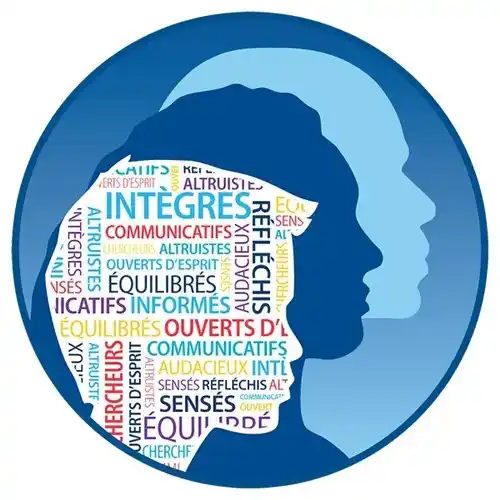“Present knowledge is wholly dependent on past knowledge.” Discuss this claim with reference to two areas of knowledge.
Our stream of thoughts can be linked to what we observe. The observation is registered and transpired to others as we exchange thoughts. The thoughts are meant to have left an impression on our mind, sometimes if not always, and therefore what we know today is the shared knowledge, as our thoughts, that have been exchanged multiple times to infinity. Not all thoughts, in the form of knowledge, are shared and accepted wholly. We use several ways of knowing to accept them fully. The thoughts help us to derive and dissect information and our ways of knowing assist us in accepting the information through the lens of certainty to call it knowledge, in my honest opinion, it can be difficult to say that whatever we know today is completely dependent on past knowledge.
The present knowledge can be defined as the current set of facts and truth. Note that truth is relative as what is true for some could be false for others. This is so because knowledge comes with a lot of problems such as lack of evidence, improper justification, biased approaches, and belief systems that do not require reasoning. This means our mind questions – ‘how do we know what we know?’.
In search of such questions, we as humans start exploring knowledge through the different lenses of ways of knowing. For example, knowledge in religious systems is a matter of belief backed up by the element of faith while laws and theories in science are investigated through the process of inductivism. Similarly, knowledge in mathematics involves creativity intellect imagination, and reasoning while a literature scholar may rely on fantasy to write a book of fiction. Whatever the case may be, undoubtedly, there is a stream and thread of information from our past that allows and encourages us to simply accept or question the knowledge. Therefore, when we question it, we are not wholly dependent on past knowledge. In fact, we apply several ways of knowing in rejecting a claim and creating fresh chunks of thoughts and information to further accept it in the present. Therefore, it can be claimed that present knowledge is not wholly dependent on past knowledge. While this may be true for some areas of knowledge, if not all, I would like a raise the following question: – ‘What is it about the explanation that diverges our knowledge?’
 Topic-Wise Online Tutoring for IB Exams!
Topic-Wise Online Tutoring for IB Exams!
The discipline of human science is vast and diverges its content into various different sub-tributaries. Anthropology and theology may show profound linkage within their respective disciplines yet they are part of human science. Both interpret human experiences and behaviors from different perspectives; while anthropology explains what makes us human, theology constitutes the study of the nature of god and religious beliefs and choices made according to what is called an appropriate practice[1]. Theology has many distinctive yet interlinking areas while anthropology is a much broader and raw approach to understanding how humans have evolved their unique existence in the sense of holism[2]. Human experiences can be viewed through the lens of emotion, sense perception, and other ways of knowing. On the other hand, theology involves faith to emerge as a systematic study of the nature of the divine and spiritual path. It is rather difficult to clearly separate the past knowledge from Anthropology that gives us present knowledge about Theology.
🎥 Recorded Online IB Classes for Revision & Replay
Theology is about the awakening of self-consciousness that solves the problem of identity crisis as it emphasizes belief. Douglas Davies highlights the contribution of theologians to the founding of anthropology while referring to the relationship between anthropology and Christianity in earlier times. On the other hand, Mary Douglas (1966)- revealed in her book “Purity and Danger”, that Hebrew practices and anthropological concepts reciprocate understanding of the Old Testament and missiological understandings of culture and society within the parlance of human existence[3]. There is mutual influence and dependence within these two distinct areas, as the amicable relationship explains the intellectual engagement of the religion practiced within the society. The past explanations by the experts about Anthropology clearly deliver insight into the present content about Theological existence within humans.
Anthropology has emotions to support viewpoints that exhibit human thinking while theology uses faith to effectively communicate possibilities of religious constitutions and how community builds it. Anthropology leverages secondary emotions to discover and convey life. These secondary emotions assist in examining and exploring self-awareness as anthropology requires higher conviction in order to exhibit the point that a discipline explores and demonstrates the reality of how people are and not how others perceive them to be[4]. The anthropologists look at life through the lens of emotions: sadness, anger, and contentment to evaluate real-life episodes. In contrast, theology believes in the idea of how people connect their lives with God while fundamentally believing that it is not just the means to live but a different way of living. Theology uses a belief system that acts as a critical force in establishing faith as the central idea to understand human beings, social life, and their interest in tracing theological roots[5].
 Online Writing Help for IB TOK & EE Essays!
Online Writing Help for IB TOK & EE Essays!
It is almost impossible to have a present cultural social context without the assistance of emotion. Therefore, many characteristics from past knowledge of Anthropology exhibit a distinctive set of priorities (the interaction of the feelings and outcomes with the divine existence) that separate the discipline for a better understanding of humans and the science behind them.
While this might be true for human science that all present knowledge is not completely dependent on past knowledge, it is unlikely to claim the same in natural science. Natural science involves reasons as justification for knowledge. Over time, the reasons may change because the premises and hypothesis require alterations in search of new knowledge. To explain this further, the following knowledge question is answered: – ‘What role does reason play in the explanation of knowledge?’
📌 Concept Mapping Tools in Our IB Online Platform
It was recently identified that men are more prone to cancer risk than women. The identification of the biological mechanism is the explanation behind the claim made by the researchers. The reason as an explanation is the absence of function in certain genes that helps in determining the Y-chromosome, which is only found in men[6]. Reasons are based on logic assumptions on which the argument is based and further conclusions are drawn. They assist in relying on parameters and arguments within valid premises. These assumptions are drawn as a pattern using inductive reasoning, from particular to general. Such generalizations are formed based on observation. In this case, the past knowledge of chromosome behavior further acts as a catalyst to produce a fresh set of present knowledge.
 Online IB Classes for All Time Zones!
Online IB Classes for All Time Zones!
Through the process of inductivism, it can be said that the chromosome composition for both males and females is different, i.e. XY for males and XX for females [7]. Through testable claims in natural science, it can further be deduced that our past knowledge about chromosomes explains the pivotal role of the Y-chromosome that conceals male-specific genes. It is the deletion, translocation, and mutation of sex-determining genes that causes disorders. The present knowledge about the loss of Y-chromosome causing male-biased diseases including cancers can be linked to predictions based on inductive generalizations from past observations. If not all knowledge but some of it is formulated from general laws related to genetically specific sex chromosome study[8].
While it cannot be denied that inductive reasoning is more rational however the present knowledge which we possess today may not be completely dependent on past knowledge. Hasty generalizations are a few examples that make our present knowledge weak and therefore our complete reliability on the past knowledge may not be correct. This means past knowledge gathered through observation, now helps in forming the present knowledge that is unobserved. Interestingly, language can be sometimes the cause of bad reasoning. Language could be the inheritedComment Text wisdom of our society as it has the tendency to rearrange the irregularities of past knowledge to sometimes shape up the present knowledge for survival.
📖 IB Online Group Classes with Collaborative Learning
Finally, it can be deduced that dividing knowledge into a separate timeframe, of past and present, is difficult. The knowledge propels from the thoughts, in general, and acts as seedlings to cultivate knowledge. It is an ongoing process. In human science, it is challenging and complicated to derive knowledge about Theology with disturbing Anthropology. In fact, the two are weaved together and are inseparable if we were to look at past and present knowledge within them. The timeline makes it impossible as most knowledge is interlinked and not all. Similarly, in natural science, past knowledge is the basis for future claims as the entire of inductivism involves hypothesis and forming theories. There is a strong link between what we claim in the present versus what we knew in the past. The knowledge is interrelated, interdependent, and continuous without detaching the concepts. The ways of knowing cannot be disengaging and they bind today’s knowledge with past ideas and models in natural science.
Not all knowledge is completely the same despite being within the same areas of knowledge. The new thoughts spur and facilitate information which, if becomes certain, is accepted as knowledge in the present. There is a possibility that the knowledge we possess today is not wholly dependent on past knowledge because of the application of various ways of knowing. Their virtue and existence lay down base for new knowledge, but it is not completely dependent. The new viewpoints, proposals, opinions, and suggestions do create opportunities for newer present knowledge which is fresh, innovative, new, and modern than the past knowledge and hence not wholly dependent.
 Elite IB Online Tutors for High-Achieving Students!
Elite IB Online Tutors for High-Achieving Students!
[1]https://www.researchgate.net/publication/236790782_Anthropology_and_Theology_An_Awkward_Relationship
[2]https://www.mdpi.com/2077-1444/8/7/114/htm
[3]https://era.ed.ac.uk/bitstream/handle/1842/5818/Martini2009.pdf?sequence=1&isAllowed=y
[4]https://sci-hub.tw/10.1353/anq.2006.0025
[5]https://plato.stanford.edu/entries/christiantheology-philosophy/
[6]https://ghr.nlm.nih.gov/gene/SRY
[7]https://www.sciencedirect.com/science/article/pii/S0960982218312132






